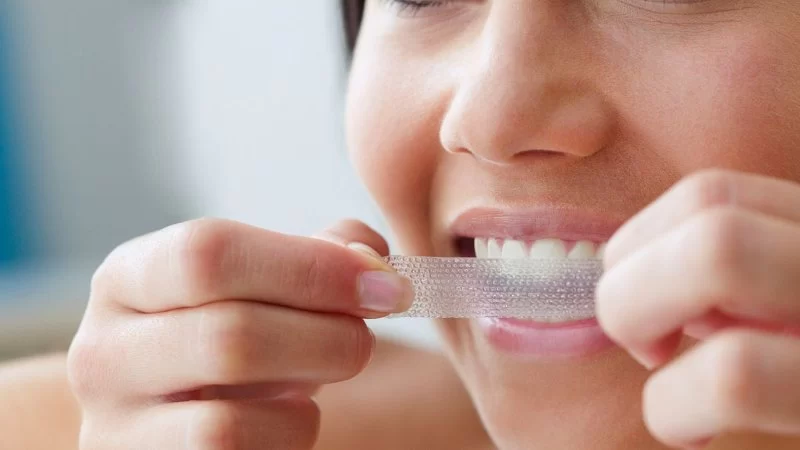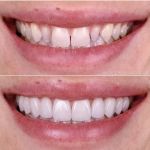
- 1 - #understanding-yellow-teeth - Understanding Yellow Teeth and Their Causes
- 2 - #natural-ways-to-whiten-teeth - Natural Ways to Whiten Teeth at Home
- 3 - #common-remedies-for-yellow-teeth - Common Remedies for Yellow Teeth
- 4 - #other-tips-to-improve-teeth-health - Other Tips to Improve Overall Teeth Health
- 5 - #when-to-see-dentist - When to See a Dentist for Yellow Teeth
1. Understanding Yellow Teeth and Their Causes
Yellow teeth can be a common dental issue for many people, but understanding why your teeth have turned yellow is the first step in addressing the problem. There are several factors that contribute to yellowing, including:
Diet and Drinks
Certain foods and beverages like coffee, tea, red wine, and acidic fruits can stain your teeth over time. The pigmentation from these substances attaches to the enamel, leading to discoloration. Additionally, sugary foods contribute to plaque buildup, which also leads to yellowing.
Smoking or Chewing Tobacco
Nicotine and tar from smoking or chewing tobacco can cause your teeth to turn yellow or even brown. These substances not only stain the surface of your teeth but also weaken the enamel, making your teeth more vulnerable to further discoloration.
Age
As you age, the enamel on your teeth naturally wears down, revealing the underlying yellowish dentin. This is a normal process, but it can be more noticeable in some individuals depending on their overall oral hygiene habits.
2. Natural Ways to Whiten Teeth at Home
If you're looking for ways to whiten your teeth without the expense of professional treatments, there are several natural remedies you can try at home. These methods are simple, cost-effective, and can be incorporated into your daily routine.
Brushing with Baking Soda
Baking soda is one of the most popular natural teeth-whitening agents. It works by gently scrubbing away surface stains while also neutralizing acids in the mouth that contribute to plaque buildup. To use, simply dip your toothbrush into a small amount of baking soda and brush gently for two minutes. Be cautious not to overuse it, as excessive scrubbing can damage enamel.
Oil Pulling with Coconut Oil
Oil pulling is an ancient practice that involves swishing oil around your mouth to remove bacteria and plaque. Coconut oil is a popular choice due to its antimicrobial properties. Swish a tablespoon of coconut oil in your mouth for 10-15 minutes every morning to help improve oral hygiene and whiten teeth naturally.
Activated Charcoal
Activated charcoal is another natural teeth-whitening remedy that works by absorbing stains and toxins from the teeth. You can use activated charcoal powder by brushing it onto your teeth and letting it sit for a few minutes before rinsing. While effective, it should be used sparingly to avoid enamel erosion.
3. Common Remedies for Yellow Teeth
In addition to natural methods, there are several over-the-counter remedies that can help reduce yellowing and improve the appearance of your teeth.
Whitening Toothpastes
Many whitening toothpastes are formulated with mild abrasives that help scrub away surface stains. Look for a toothpaste that is approved by the American Dental Association (ADA) for safe and effective whitening. These products often contain ingredients like hydrogen peroxide or baking soda to help whiten teeth over time.
Whitening Strips and Gels
Whitening strips and gels contain peroxide-based bleaching agents that can whiten teeth by breaking down deep stains. They are generally more effective than toothpaste and can deliver noticeable results within a week or two. Make sure to follow the instructions carefully to avoid overuse and sensitivity.
4. Other Tips to Improve Overall Teeth Health
Maintaining overall teeth health is essential to keeping your teeth white and strong. In addition to whitening treatments, here are some tips to help improve the overall health and appearance of your teeth:
Regular Brushing and Flossing
Brush your teeth at least twice a day with fluoride toothpaste and floss daily to remove plaque and prevent tartar buildup. Tartar can lead to yellow stains that are harder to remove, so keeping your teeth clean is crucial for maintaining a bright smile.
Stay Hydrated
Drinking plenty of water throughout the day not only helps keep your body hydrated but also aids in washing away food particles and bacteria that cause plaque buildup. Drinking water after meals can help prevent stains from setting on your teeth.
Limit Staining Foods and Drinks
While it's not always possible to avoid staining foods completely, reducing their consumption can significantly impact the color of your teeth. Consider limiting drinks like coffee, tea, and wine or drinking them through a straw to minimize contact with your teeth.
5. When to See a Dentist for Yellow Teeth
While natural and over-the-counter remedies can be effective, there are times when it’s necessary to consult a dentist for professional treatment. If you’ve tried home remedies without success or if your teeth are showing signs of damage, such as sensitivity or deep stains, it may be time to visit a dentist.
Professional Whitening Treatments
For more dramatic results, a dentist can offer professional whitening treatments that use stronger bleaching agents. These treatments can provide faster and more noticeable results than home remedies and are tailored to your individual needs.
Preventing Future Stains
A dentist can also provide advice on preventing future staining and may suggest fluoride treatments or sealants to help protect your teeth from future damage. Regular dental checkups and cleanings can also help maintain a bright smile and overall dental health.
Maintaining a bright smile is about more than just whitening your teeth—it’s about establishing habits that support long-term oral health. By using natural remedies, being consistent with your oral care routine, and visiting your dentist regularly, you can keep your teeth looking their best for years to come.







 Lourdes's Dentistry - Affordable Dentist4.0 (160 review)
Lourdes's Dentistry - Affordable Dentist4.0 (160 review) Silc Periodontics4.0 (169 review)
Silc Periodontics4.0 (169 review) Doc Bresler's Cavity Busters4.0 (363 review)
Doc Bresler's Cavity Busters4.0 (363 review) McCall Family Dentistry5.0 (718 review)
McCall Family Dentistry5.0 (718 review) Justin Ewell, DMD at Suncoast Dental Goodyear0.0 (0 review)
Justin Ewell, DMD at Suncoast Dental Goodyear0.0 (0 review) Harbor Point Dental at Pelham Manor4.0 (118 review)
Harbor Point Dental at Pelham Manor4.0 (118 review) The Importance of Oral Health Education During Pregnancy for a Healthy Pregnancy
The Importance of Oral Health Education During Pregnancy for a Healthy Pregnancy Best Tips for Brushing Your Teeth Properly for Healthy Gums: Essential Techniques for Oral Health
Best Tips for Brushing Your Teeth Properly for Healthy Gums: Essential Techniques for Oral Health Why Skipping Dental Checkups Can Lead to Bigger Oral Health Problems
Why Skipping Dental Checkups Can Lead to Bigger Oral Health Problems Advantages of Porcelain Dental Restorations
Advantages of Porcelain Dental Restorations How Can Diabetes Cause Tooth and Gum Problems? Preventing and Managing Oral Health Issues
How Can Diabetes Cause Tooth and Gum Problems? Preventing and Managing Oral Health Issues Healthy Habits for Promoting Good Oral Health and Hygiene: Tips for a Healthy Smile
Healthy Habits for Promoting Good Oral Health and Hygiene: Tips for a Healthy Smile